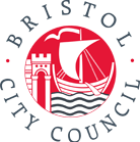Bristol Drugs Project secures funding for research to explore views of overdose prevention centres
- 30th April 2025
Image credit: Bristol Drugs Project
The Mental Health Research Incubator has awarded Bristol Drugs Project (BDP) funding to study local attitudes to overdose prevention centres.
BDP is a charity providing treatment services for people in Bristol and surrounding areas who are seeking support for alcohol or other drugs. It is part of Horizons: Bristol’s Drug and Alcohol Partnership, with Turning Point and seven other local organisations, and also a member of Bristol Health Partners’ Drug and Alcohol Health Integration Team.
Drug-related deaths are increasing in Bristol, reflecting national trends, and injecting in public is being reported in local communities.
Overdose prevention centres are intended to reduce the harms of using drugs. They provide safe, hygienic spaces where people can use illegal drugs with new equipment. Staff are available to provide first aid if needed and support access to other services.
International evidence suggests overdose prevention centres have a range of benefits for both people who inject drugs and the wider community. These include improving the health of people who inject drugs and reducing public injecting.
The funding enables a University of Bristol researcher to join BDP’s Engagement Team to explore local people’s views of these centres. They will be supported by the National Institute for Health and Care Research Applied Research Collaboration West (NIHR ARC West).
The researcher will interview a range of people who inject drugs . Interviews will explore the potential benefits, challenges and opportunities of such a service in Bristol.
This study will provide important evidence for local decision makers. It will support Bristol City Council’s public health needs assessment which states it will “consider the evidence base behind new harm reduction measures such as drug consumption rooms.”
Lydia Plant, BDP CEO said:
“BDP is committed to looking for new ways to reduce harms associated with drug use, whether to individuals or communities. Doing what works is important to us and we are delighted to continue our long-standing relationship with the University of Bristol, ensuring that the voices of people who inject drugs in Bristol are front and centre in this exciting piece of research.”
Hannah Family, Research Fellow in NIHR Applied Research Collaboration (ARC) West, said:
“We are very excited to be supporting BDP in this work and continuing our collaboration with them. Whenever new services are considered, starting with the voices of people who might use and benefit from them is key, and civic engagement is a core to the University of Bristol’s vision and strategy.
“For us, it’s going to be really exciting for one of our team to be embedded at BDP for the duration of the project. Having this close working relationship will enable us to demystify some parts of the research process for our colleagues ‘on the front line’. For our research team I have no doubt this will help us better understand the realities of delivering harm reduction services.”






